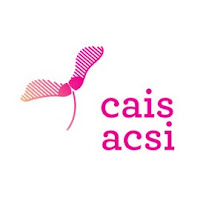The latest volume (no. 15, 2021) of the open-access journal
International Journal of Communication https://ijoc.org/index.php/ijoc/issue/view/17 includes
-
“One Big Fake News”: Misinformation at the Intersection of User-Based and Legacy Media by Aya Yadlin, Oranit Klein Shagrir. "We show how online mediated spaces that are considered aggressive and counterproductive should also be understood as facilitators of calls against misuse of public resources and manipulations spread in society. We thus suggest that alongside legacy mainstream media, user comments can become part of the solution for the prevalence of disinformation in our current digital media ecosystem."
-
Developing a Perceived Social Media Literacy Scale: Evidence from Singapore by Edson C. Tandoc et al. "Through a series of 4 studies (focus group discussions involving social media users and 3 nationally representative online surveys) conducted in Singapore, we identify 4 types of competencies in which social media literacy can manifest: technical, social, privacy related, and informational. ... based on the qualitative results, we developed and tested a perceived social media literacy (PSML) scale through a series of 3 national online surveys, where we found disparities in PSML based on socioeconomic factors."
and the issue has a special section on
Comparative Approaches to Mis/Disinformation
-
Electronic Armies or Cyber Knights? The Sources of Pro-Authoritarian Discourse on Middle East Twitter by Alexei Abrahams, Andrew Leber.
-
Motivations for Sharing Misinformation: A Comparative Study in Six Sub-Saharan African Countries by Dani Madrid-Morales et al
-
When Machine Behavior Targets Future Voters: The Use of Social Bots to Test Narratives for Political Campaigns in Brazil by Rose Marie Santini, Débora Salles, Giulia Tucci
-
Fighting Zika With Honey: An Analysis of YouTube’s Video Recommendations on Brazilian YouTube by Jonas Kaiser, Adrian Rauchfleisch, Yasodara Córdova
-
Belief in or Identification of False News According to the Elaboration Likelihood Model by Chi-Ying Chen, Mike Kearney, Shao-Liang Chang. One of their findings from this quantitative study was "information literacy was not a moderator for any informational cue. This reveals the urgency of improvements in literacy education, especially when considering the roles of individuals as media gatekeepers in SM." However, the 3 items used to measure IL were "I can search for online information when I need to; I contribute to online discussion in the form of writing comments when I need help; I verify online information when I am not sure about its authenticity."
-
Selective Belief: How Partisanship Drives Belief in Misinformation by Taberez Ahmed Neyazi, Burhanuddin Muhtadi
Photo by Sheila Webber: floribunda, June 2021
 Feedback on the Visual Literacy Framework , a Companion Document to the ACRL Information Literacy Framework, is sought by the Image Resources Interest Group of the Association of College & Research Libraries (ACRL) by 7 July 2021. "We are asking you to consider how you might use this document. We would also like to understand how it could be improved to better align with your needs. We thank you in advance for your input to ensure this document is thoughtful and useful." The draft is here https://acrlvltf.org/feedback/
This is the successor to the 2011 Visual Literacy Competency Standards for Higher Education (Visual Literacy Standards)
Feedback on the Visual Literacy Framework , a Companion Document to the ACRL Information Literacy Framework, is sought by the Image Resources Interest Group of the Association of College & Research Libraries (ACRL) by 7 July 2021. "We are asking you to consider how you might use this document. We would also like to understand how it could be improved to better align with your needs. We thank you in advance for your input to ensure this document is thoughtful and useful." The draft is here https://acrlvltf.org/feedback/
This is the successor to the 2011 Visual Literacy Competency Standards for Higher Education (Visual Literacy Standards) 





















